Madeleine Stern’s quote about the the Prince of Serendip (one of the Praxis passages on the Digger web site) came true this fall. The COVID pandemic has been conducive for uncovering missing sources, apparently. I was looking through boxes of ephemera that had not yet been scanned, one of which was Freeman House’s archive that he donated in 1980. One sheet caught my eye, titled “term paper.” Perhaps because it wasn’t signed “Diggers” I had not paid it close attention before. But the first sentence jumped off the page:
the relationship between poetry and revolution has lost its ambiguity—gregory corso’s poem POWER was the sole reason behind the concept of the Diggers: autonomy.
—”term paper” (Digger street sheet, 1966-7)
I immediately looked for Gregory Corso’s poem POWER. Peter Berg referred to one of Corso’s plays in a remembrance of Gregory on the Planet Drum web site:
It was easy to feel brotherly toward Gregory. I knew his Gasoline poems and some others, and was especially impressed by a one-act play titled Standing on a Street Corner. It exuded the spirit of a wise clown epitomized in the line, “Standing on a street corner doing nothing is power.” I used the script in a weekly play study class in my Haight-Ashbury apartment for fellow San Francisco Mime Troupers. It helped inspire the concept of guerrilla theater that was incubating then for future pieces performed in Sproul Plaza during teach-ins, at a bus station, and on actual street corners.
—Peter Berg, memorial speech for Gregory Corso (2001)
But “term paper” didn’t say “one-act play”—it specifically said “poem.”
Then, this past month, my communal zoom group suggested that I give one of our weekly presentations on “The Life & Times of Irving Rosenthal (to 1971)” to uncover the hidden connections in the lives of anyone who was influenced by the Kaliflower network (comprising the hundreds of communes in the SF Bay Area in the 1960/1970s).
In researching the presentation, I came across a most interesting reference. In early 1959, Irving Rosenthal was putting the final touches on Big Table 1, the literary journal that he founded with Paul Carroll to publish the Beat writings that the University of Chicago had banned after the Chicago Review scandal in late 1958 (Naked Lunch by William Burroughs, Old Angel Midnight by Jack Kerouac). Rosenthal wrote to Allen Ginsberg that he had decided to add three poems Gregory Corso had just sent him: “Power (for Allen Ginsberg)”; “Army”; and, “Police.”
So here then was the missing link. Corso’s poem “POWER” (in all caps, just as the Digger sheet titled it likewise) was published in Big Table 1 in March 1959. It became the inspiration for Digger autonomy. And notice the slight shift in wording from Corso’s play that Berg referenced. See images below of both items that were uncovered.
“term paper” Digger street sheet (1966-67):
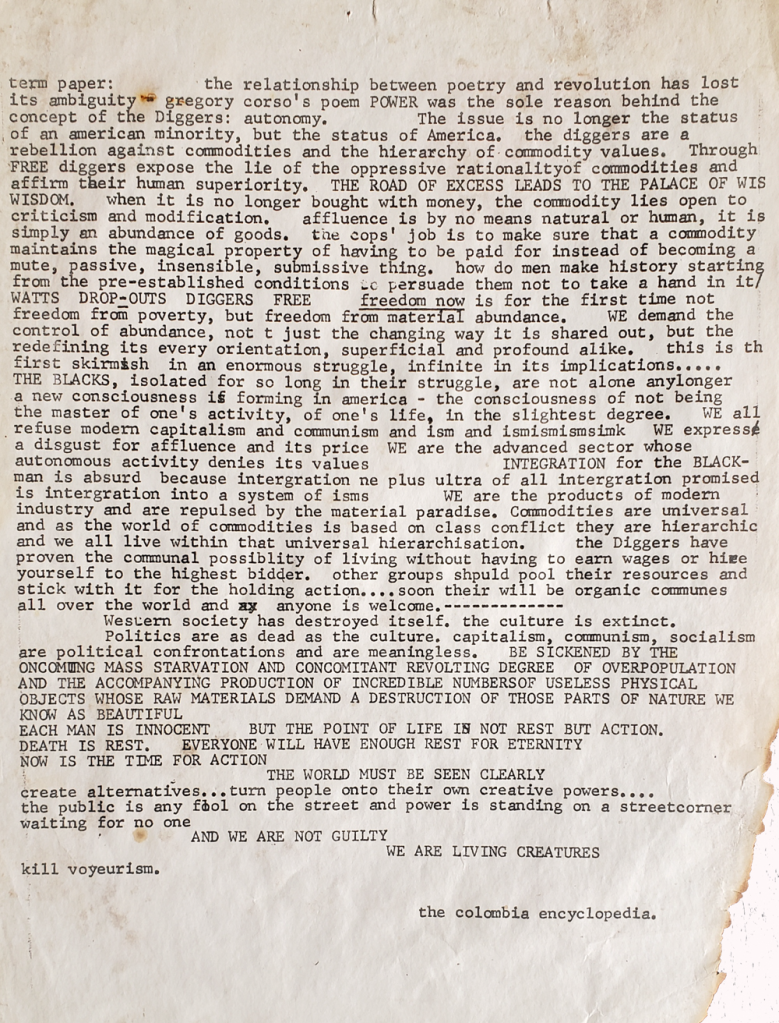
“POWER (for Allen Ginsberg)” excerpt from Big Table 1
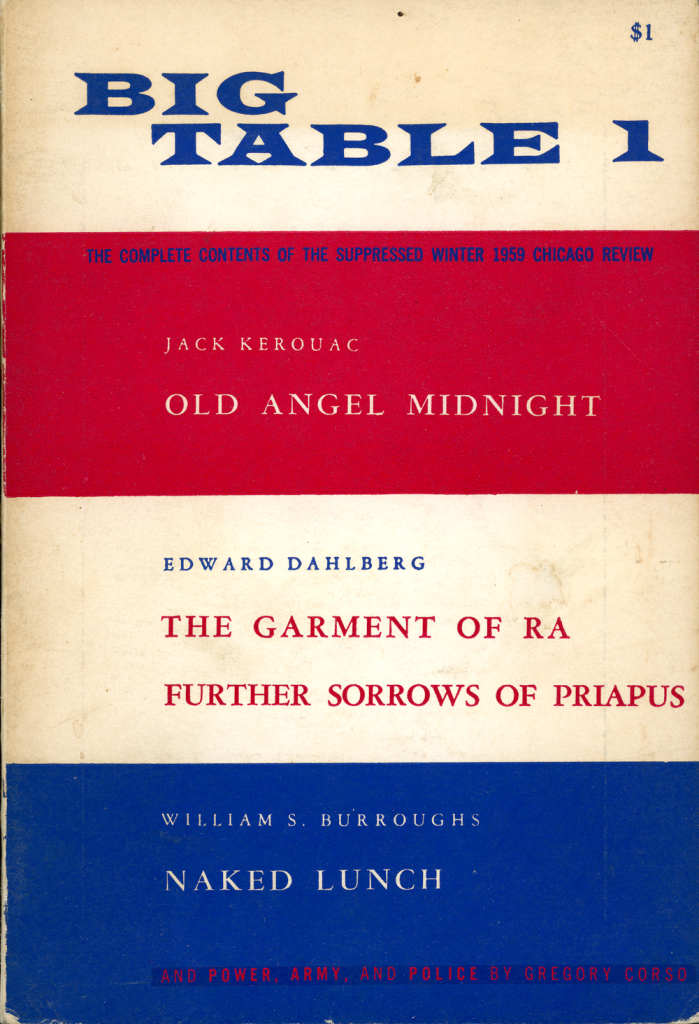
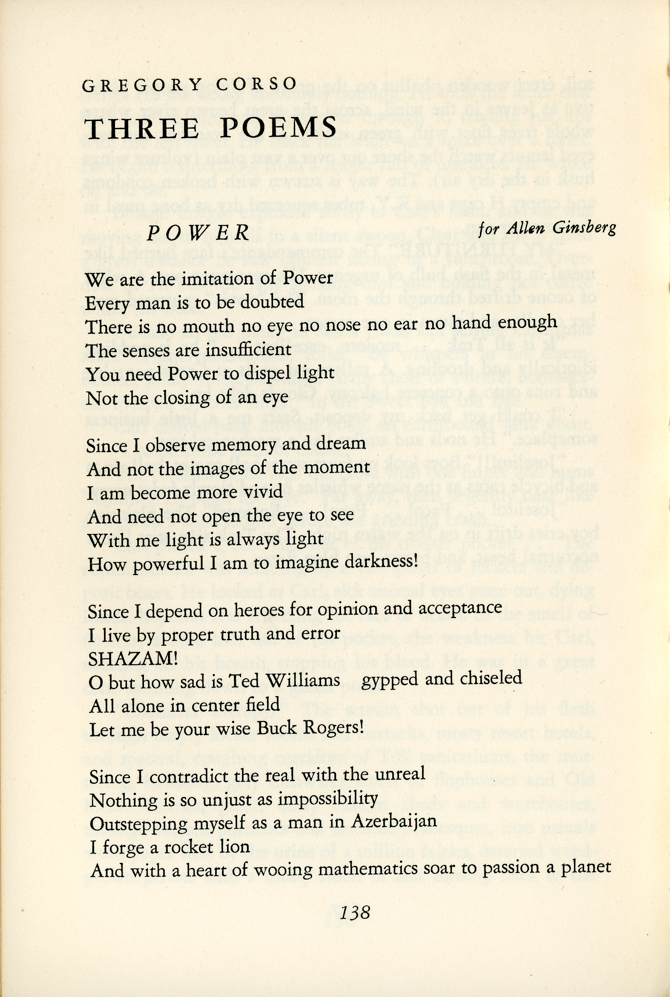
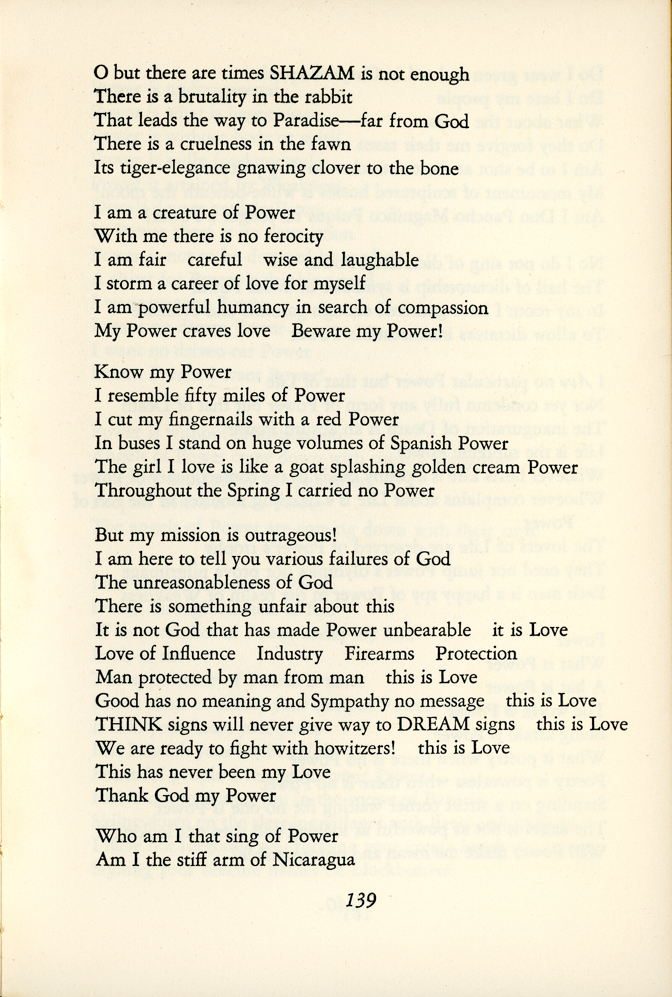
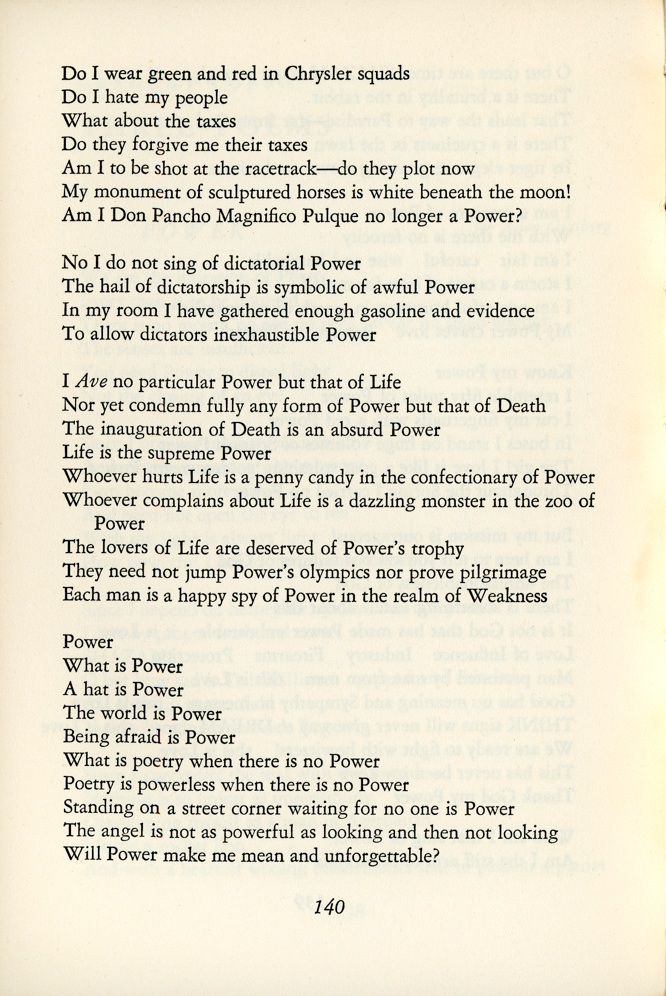
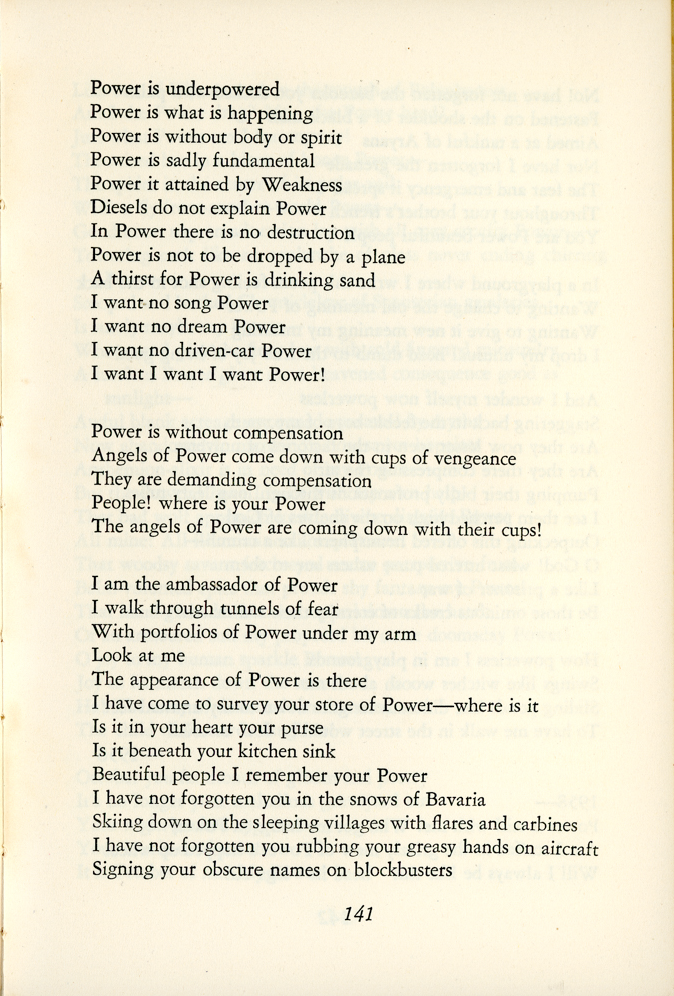
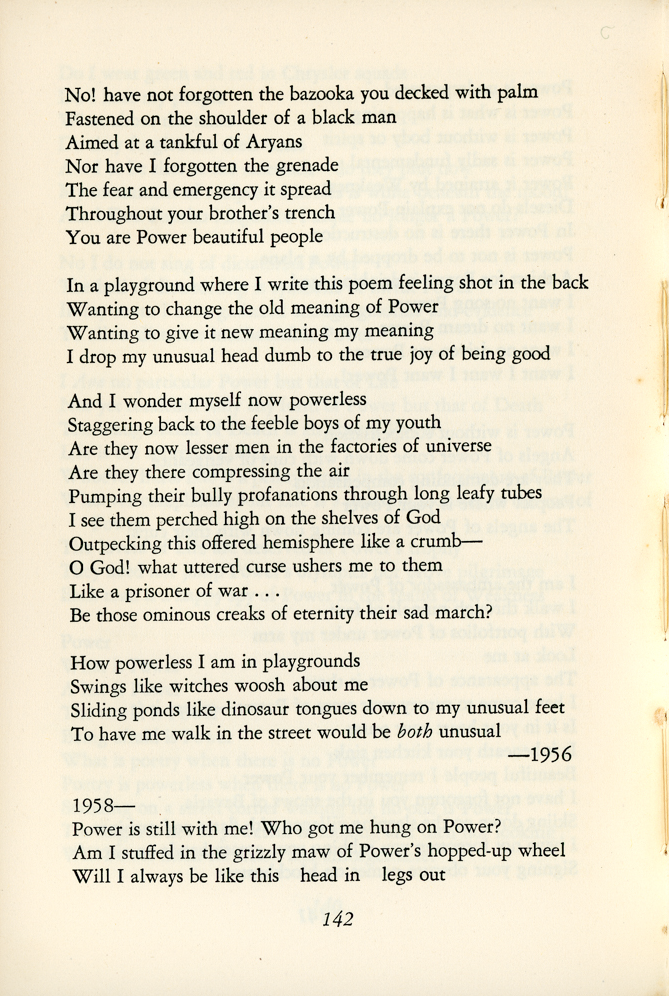
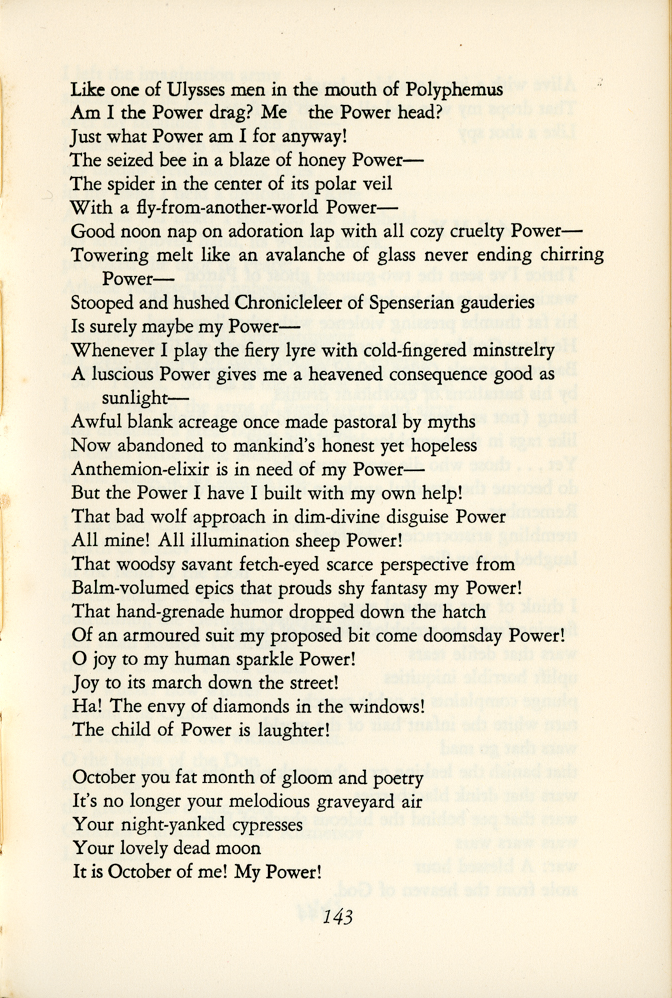
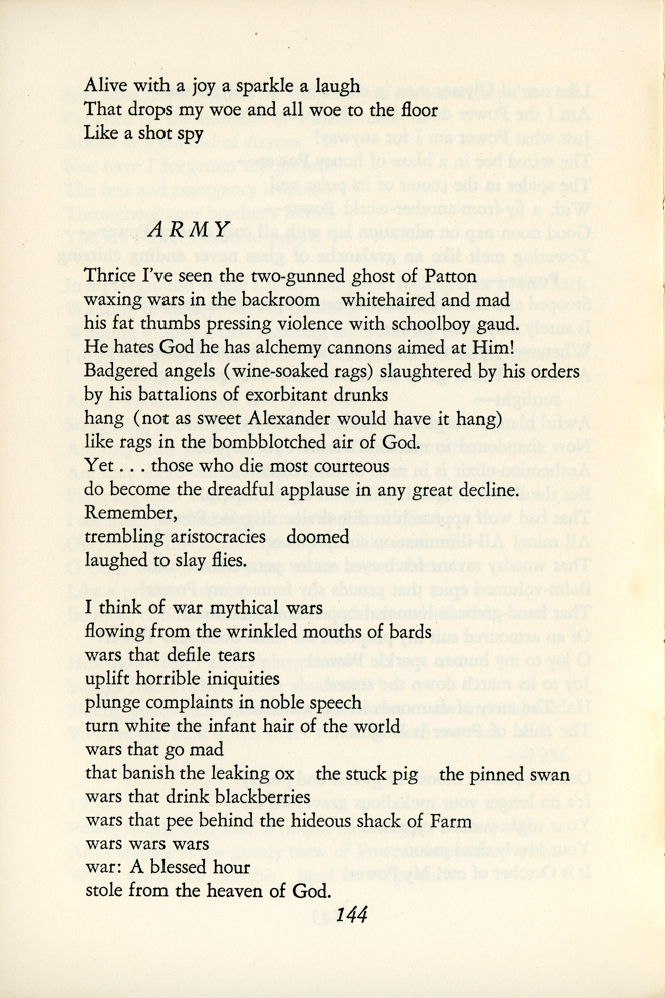
“Standing on a street corner waiting for no one is Power”—the missing link between the Beats and the Diggers.

A very important and creative piece of scholarship! Thank you very much for posting this Gregory Corso’s plays are fabulous and there will be a collection out in the new year from Richard Schober’s Tough Poets Press in Arlington, MA. Including the poem discussed here, “Standing on a Street Corner,” written in 1953 and published in the Evergreen Review in 1962.